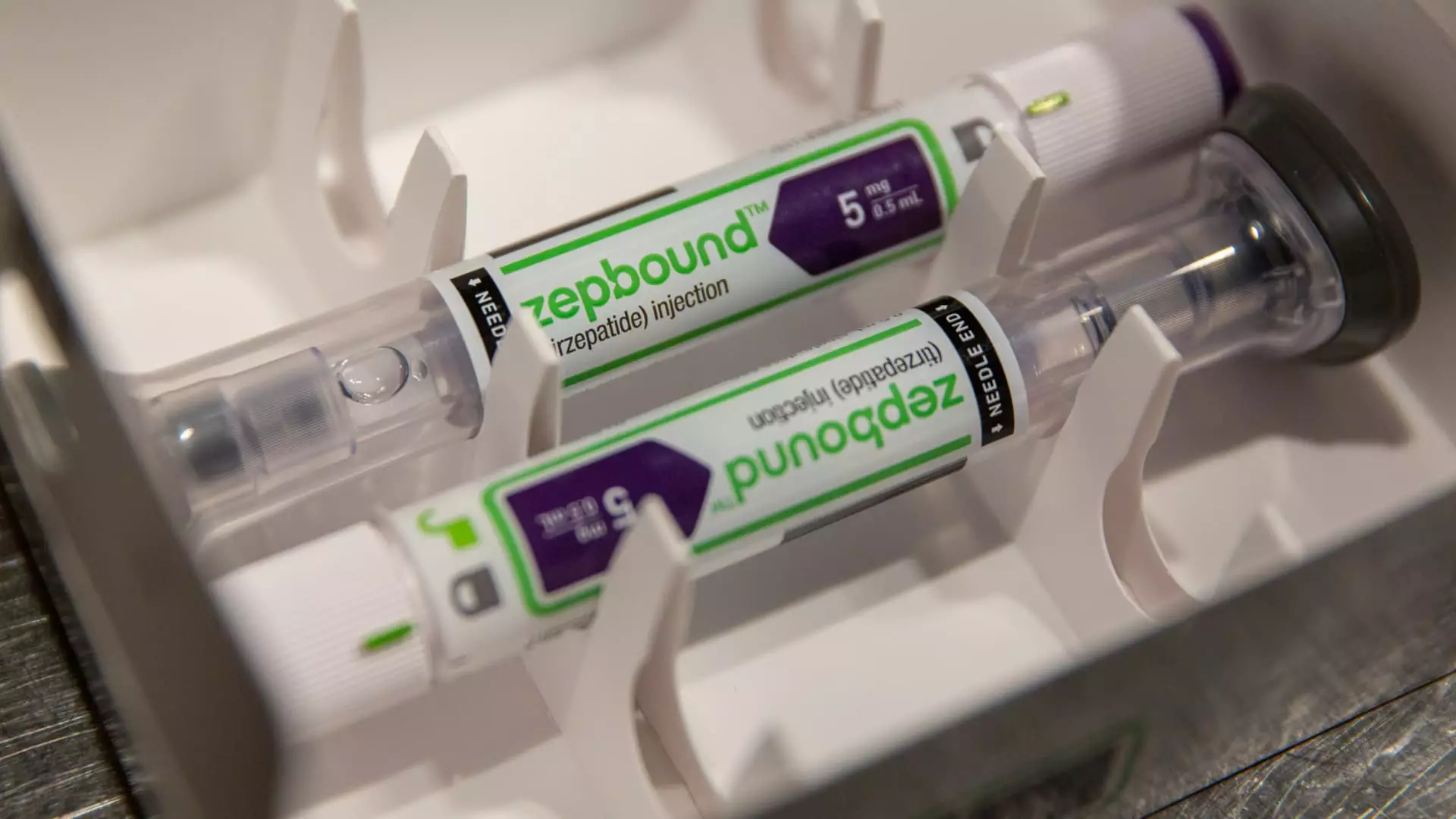Revolutionizing Sleep Health: Eli Lilly’s Zepbound for Obstructive Sleep Apnea

In a significant advancement for both weight management and sleep health, the Food and Drug Administration (FDA) has recently greenlit Eli Lilly’s innovative weight loss medication, Zepbound, for off-label usage in treating obstructive sleep apnea (OSA). This groundbreaking decision marks a pivotal moment for millions affected by OSA—a common yet frequently overlooked condition characterized by interrupted breathing during sleep due to airway obstructions. While Zepbound primarily emerged as an anti-obesity treatment, its newfound indication for OSA offers hope to those struggling with this serious disorder.
Obstructive sleep apnea is a prevalent health issue in the U.S., with an astonishing 80 million individuals estimated to be living with symptoms, according to Eli Lilly. Of these, approximately 20 million patients suffer from moderate-to-severe cases, yet around 85% remain undiagnosed. The seriousness of this condition extends beyond mere snoring; it can lead to severe complications including cardiovascular problems, metabolic dysregulation, and impaired cognitive function. The pressing reality is that OSA is often underestimated or mischaracterized as trivial, which emphasizes a critical need for heightened awareness and accessible treatments.
Historically, treatment options for OSA have been limited. Conventional modalities primarily revolve around the use of continuous positive airway pressure (CPAP) devices, which, while effective for many, can be cumbersome and uncomfortable. This often discourages adherence among patients. With Zepbound’s approval, there is now a promising alternative that researchers believe could significantly enhance patient compliance and quality of life. As Julie Flygare, health advocate and CEO of Project Sleep, aptly noted, there’s a growing recognition of the importance of understanding OSA symptoms and seeking effective treatments—especially when options like Zepbound are available.
The Mechanism Behind Zepbound and Its Research
Zepbound contains tirzepatide as its active ingredient, a substance that has garnered attention not only for its weight management efficacy but also for its potential broader health impacts. Initial trials showcased Zepbound’s versatility beyond its metabolic benefits, demonstrating it reduces the severity of OSA in patients alongside obesity. Clinical findings indicated that participants receiving Zepbound achieved disease resolution at substantially higher rates compared to those on placebo—43% in one trial and 51.5% in another, showcasing its promising impact on the apnea-hypopnea index, a critical measure of OSA severity.
Eli Lilly is enthusiastic about rolling out Zepbound for OSA treatment starting early next year, setting the stage for new dialogue regarding sleep health and a potential shift in how healthcare providers approach and treat OSA.
Potential for Insurance Coverage Expansion
One of the pivotal takeaways from this approval lies in its implications for insurance coverage, particularly with Medicare. At present, many healthcare insurances do not cover anti-obesity medications unless they are endorsed for addressing coexisting health risks. Should Zepbound’s incorporation into treatment options for OSA gain traction, it may inadvertently lead to broader acceptance and coverage for other weight-loss therapies as well. Patients are likely to find it easier to access this groundbreaking treatment, broadening the scope of effective medical interventions available for those grappling with dual health issues of obesity and sleep disorders.
What sets Zepbound apart in the market of weight-loss and OSA treatments is its competitive positioning against contemporaries like Wegovy, which is not currently approved for managing OSA. Thus, patients may find Zepbound to be an effective and suitable alternative. Given that the usage of GLP-1 medications has increased over the past few years, the healthcare community is keenly observing Zepbound’s mainstream acceptance and its ability to navigate through existing drug shortages that have affected similar medications.
The FDA’s endorsement of Zepbound as a treatment for obstructive sleep apnea alongside its obesity indication represents a transformative moment in medical care for millions of Americans. With this approval, Eli Lilly aims to enhance patient outcomes and catalyze increased conversations about sleep disorders within healthcare. As awareness grows and treatment options expand, there lies hope for many who have long struggled with the burdens of impaired sleep—marking a critical advancement in the dual ambitions of improving sleep health and managing obesity in the United States.





